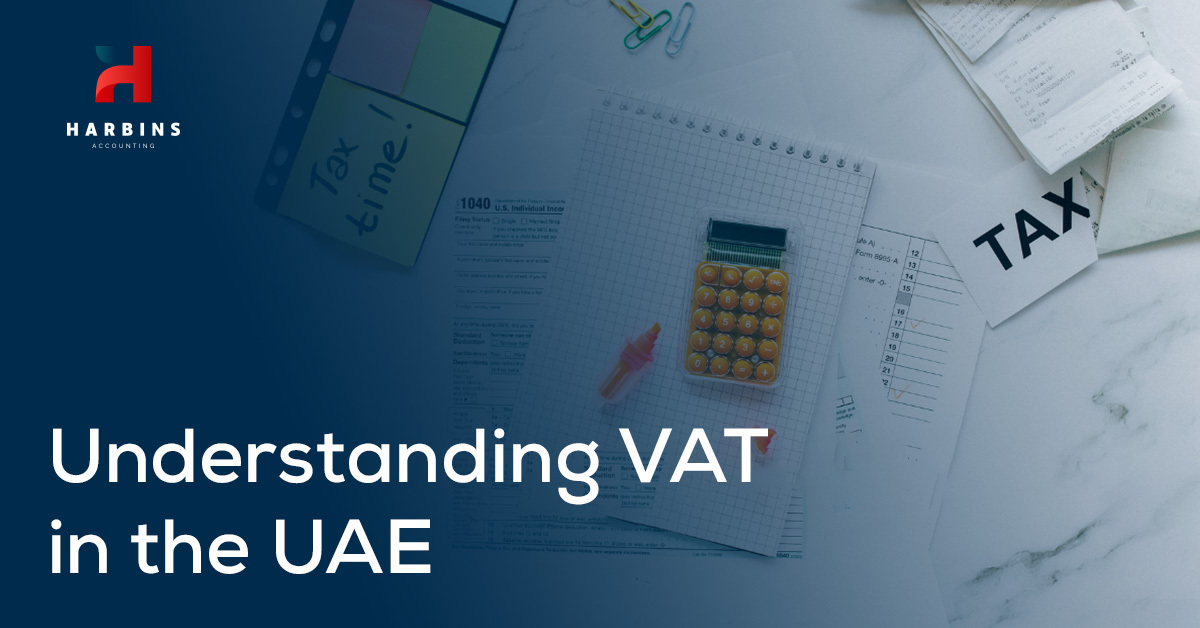Introduction
Value Added Tax (VAT) is a transaction-based indirect tax imposed on the import and supply of goods or services, including deemed supplies. In the United Arab Emirates (UAE), VAT is a significant aspect of the tax system, impacting businesses and consumers alike. This article aims to provide a comprehensive understanding of VAT, its workings, rates, registration processes, and implications for businesses operating in the UAE.
What is VAT?
VAT is a type of general consumption tax, where the final consumers bear the cost, and businesses collect and account for the tax. It is levied at each stage in the chain of production and distribution, with businesses acting as intermediaries, collecting VAT on behalf of the authorities. Ultimately, the end consumer pays the VAT.
The UAE applies two VAT rates
- Standard Rate: 5%
- Zero Rate: 0%
Taxable Supplies
Taxable supplies in the UAE include goods or services for consideration in the course of conducting business. Exempt supplies, on the other hand, are not subject to VAT. It’s crucial to differentiate between zero-rated and exempt supplies, as they have distinct implications for businesses.
Zero-Rated Supplies
Zero-rated supplies have a VAT rate of 0%, but they are still treated as taxable supplies. Examples include exports, international transport, certain precious metals, newly constructed residential buildings, and educational and healthcare services.
Exempt Supplies
Exempt supplies, such as financial services, residential buildings, bare land, and local passenger transport, do not incur VAT, and they are not treated as taxable supplies.
VAT Registration
Mandatory registration is required if the total value of supplies and imports within the UAE exceeds AED 375,000 in 12 months. Voluntary registration is an option if the threshold exceeds AED 187,500. Deregistration is possible under specific circumstances, and group taxation allows related parties to register as a single taxable person.
VAT on Imports
VAT is due on imported goods unless they fall under customs duty suspension arrangements or are exempt from customs duties according to the GCC Common Customs Law.
VAT in Free Zones
Normal VAT is applicable on the supply of services in free zones. For goods, specific rules apply, such as no VAT on goods transferred within a designated zone and normal VAT on the supply of water or energy within a designated zone.
Tax Liability
A registered person’s tax liability is the difference between output tax (collected on sales) and input tax (paid on purchases). If output tax exceeds input tax, the difference must be paid to the FTA, and if input tax exceeds output tax, a refund is possible.
Conclusion
Understanding VAT is essential for businesses operating in the UAE. With distinct rates, registration processes, and implications for different types of supplies, businesses must navigate the VAT landscape effectively to ensure compliance and financial efficiency. As VAT regulations may evolve, staying informed is crucial for businesses to adapt and thrive in the dynamic business environment of the UAE.
 +971 50 846 8427
+971 50 846 8427 info@harbinsme.com
info@harbinsme.com +971 50 846 8437
+971 50 846 8437 info@harbinsme.com
info@harbinsme.com

